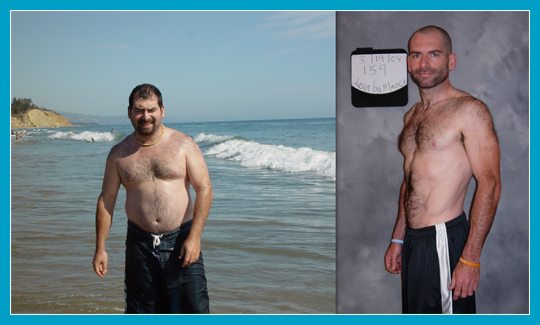Most weight management sites use a simplified equation based on age, gender, height, weight and activity level to calculate the number of calories we should eat to lose or maintain our weight.
For example, I recently visited a popular calorie calculator, entered an age of (38), male, height (5’ 9”), my weight (213 pounds) and chose the “Active” activity level.
I provided the age and weight I was prior to the losing the 50 pounds I lost a few years back as I wanted to see what the calculator would have suggested to me back then. I’m 43 now.
I hit the calculate button and it suggested that to maintain my current weight I should eat 2619 calories per day, but if I wanted to lose approximately one pound per week, I should eat 2119 calories per day.
I wanted to lose one pound per week.
Flash back to 2008. I lost my excess 50 pounds by eating no more than 2200 calories per day. That was the magic number that worked for me (however, I arrived at that number quite a bit differently than by the logic of a calorie calculator).
It took me about 10 months to lose the weight for good, but it was a challenge to stick to that number day in and day out.
Prior to discovering I could eat 2200 calories and be both satisfied while still losing weight at the same time, I was unconsciously averaging 3400 calories per day and getting heavier and heavier by the meal.
Ok back to the calorie calculator results I received. Their suggestion of eating 2119 to lose a pound a week is slightly lower than the calorie goal of 2200 I used to drop my excess weight, but not by too much. The main issue I have with calorie calculators, other than the fact they merely provide “a general guideline for information purposes only”, is the real missed opportunity to invest the time to get to know our current eating habits; to first take into consideration what isn’t working (how much food am I currently eating). They’re unable to personalize initial recommendations for each individual eater.
We’ve got to know where we’ve been to know where we’re going. Everyone is different. Now, I’ll be the first to agree that following a general guideline has got to be better than continuing to over eat, but easier said than done.
To greatly improve our chances of long-term success we must slowly transition (over a month or two) how much we eat now (usually too much) to how much we should be eating (each week) to trigger excess pounds to automatically skid-addle on weigh-in day.
It’s a metamorphosis that retrains our eyes, our stomachs and our minds allowing our bodies to get used to the whole idea of eating less.
The kicker is that it takes that month or two to arrive at an eating goal that’s personalized just for you. The only way to arrive at that number, and make it stick, is to have patience (let it happen) and be consistent (don’t quit).
It’s taken years to master our over-eating habits. We make the same mistakes so frequently it has become second nature. It’s how we eat.
It’s gonna take at least a few months of initial time investment to break those habits in a way that fricken works. Had I tried to go from averaging 3400 calories per day directly down to 2200 (in one shot) it would have been like telling myself to only breathe for 18 out of the 24 hours available in the day. I wouldn’t have lasted long.
» Bryan

